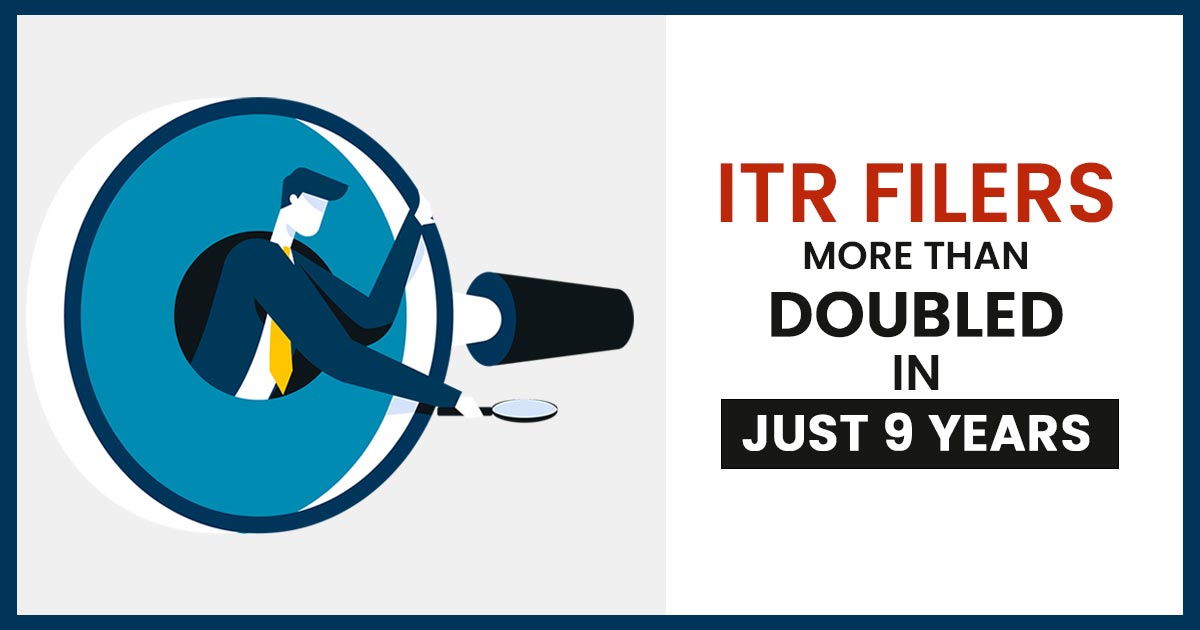
Over the past nine years, the number of taxpayers who have submitted tax returns has more than doubled, reaching 7.8 crore, thanks to increased compliance and the adoption of technology by the tax department.
According to the latest time series data from the Central Board of Direct Taxes (CBDT) for the fiscal year 2022-23, the total number of Income Tax Returns (ITRs) filed during FY23 amounted to 7.8 crore. This marks a substantial 105% growth compared to the 3.8 crore returns filed in the fiscal year 2013-14.
In the fiscal year 2022-23, Tax Deducted at Source (TDS) constituted the largest share among direct taxes, amounting to Rs 8.2 lakh crore. Additionally, Advance Tax reached Rs 7.3 lakh crore, while Self-Assessment Tax stood at Rs 1.3 lakh crore for the same fiscal year, as indicated by the data.
The tax department defines a “taxpayer” as an individual who has either submitted a return of income for the relevant assessment year (AY) or in whose case tax has been deducted at source in the relevant financial year (FY), even if the taxpayer has not filed the return of income.
The tax department said that the Net direct tax receipts rose 160.5% from Rs 6,38,596 crore in FY14 to Rs 16,63,686 crore in 2022-23.
Important: Full Process of Income Tax Return Filing without Software
The government’s target is to amass Rs 18.2 lakh crore from direct taxes, encompassing personal income tax and corporate tax, marking a 9.6% increase from the Rs 16.6 lakh crore collected in the preceding fiscal year.
CBDT data further reveals a substantial surge in gross direct tax receipts, soaring by 173.3% to Rs 19,72,248 crore in FY23 from Rs 7,21,604 crore in FY14. The direct tax-to-GDP ratio witnessed an increase from 5.6% to 6.1%, while the cost of collection decreased from 0.6% of the total collection in FY14 to 0.5% of the total receipts in the previous fiscal year.
Direct taxes constituted 54.6% of total revenues in 2022-23, a rise from 52.3% in the preceding fiscal year.
The tax department has implemented a series of reform measures over the years to enhance compliance and augment receipts. The extensive utilization of technology and big data has played a pivotal role in improving compliance and addressing loopholes in the system.








